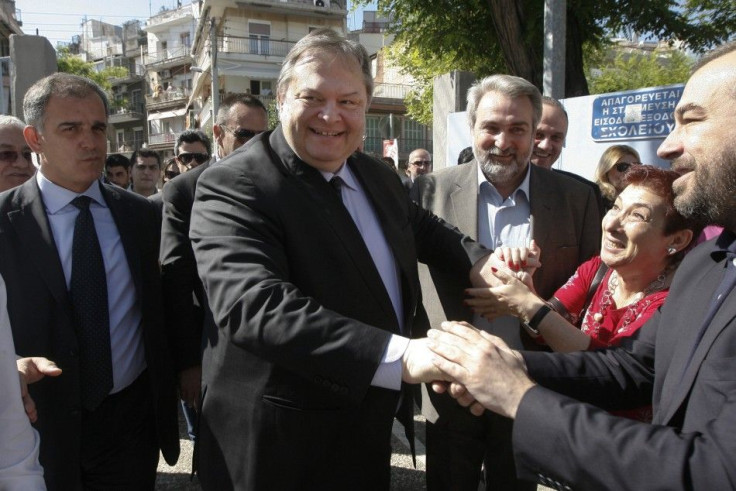Greek Elections: Amidst Anger At Mainstream Parties, High Turnout Predicted

Greeks voted Sunday in elections that are expected to yield a fragmented parliament with no decisive mandate, while the country reels under a brutal austerity program.
Polls will close at 7 p.m. Athens time (noon EDT), but a “safe” projection will not be possible until 11 p.m, according to the Ekathimerini newspaper of Greece.
Early reports suggest a high turnout.
Amidst a plethora of political parties running in the election, the conservative New Democracy (ND) party is expected to come in first, with the Socialist PASOK party finishing second. However, the two leading mainstream parties will likely have to form an uneasy coalition in order to form a new government.
PASOK, led by former Finance Minister Evangelos Venizelos, is the only one that supports Greece’s austerity program in exchange for huge bailout loans from the European Union and International Monetary Fund. Antonis Samaras, the boss of ND, has only given the austerity scheme a lukewarm endorsement.
Virtually all of the other smaller parties – regardless of political ideology -- are opposed to the bailouts and the strict economic program that Athens has imposed upon the public in response.
As a result, both ND and PASOK will likely see many of their former supporters flock to extremist parties.
Mark Lowen, a BBC correspondent in Athens, wrote: “The two big parties that have pushed through the cuts -- the Socialist PASOK and conservative New Democracy -- are expected to lose ground to a kaleidoscope of smaller, anti-austerity parties.”
Ekathimerini estimates that ND-PASOK combined will need at least 36 percent of Sunday’s poll tally to form a government with more than 151 MPs in the 300-seat Athens Parliament.
According to the latest polls, ND and PASOK combined have about 40 percent support of the electorate.
Venizelos has warned that this is the most important election Greece has faced since 1974 when the military junta collapsed.
“The result of this election will set our course,” he said in Thessaloniki.
Samaras, voting in the Peloponnese, said Greeks are voting for “their children’s future” and that the public wants “stability, security, growth and justice.”
Caretaker non-party Prime Minister Lucas Papademos told reporters in Athens on Sunday: “Everyone has to weigh up their choices today and decide what the country’s course will be for the next few decades.”
However, political leaders of the far right and far left have warned voters that there is very little difference between the two principal parties.
Giorgos Karatzaferis, leader of the extreme right-wing Popular Orthodox Rally, said: “I would like to believe that Greeks will use whatever logic they have been left with.”
Samaras has tried to appeal to voters of the far right by promising to end illegal immigration.
Alexis Tsipras, head of the Coalition of the Radical Left (SYRIZA), which is expected to siphon off significant number of votes from PASOK, said: “People will send a strong message to all of Europe and will turn a new page, leaving behind the catastrophic political powers.”
If the smaller and fringe parties gain enough support to place members in parliament, Greece’s membership in the euro zone may be at great risk.
The BBC’s Lowen commented: “A fragmented political landscape that could derail Greece's international bailout and again raise questions over its continuing membership of the euro.”
Indeed, German Finance Minister Wolfgang Schauble has already warned that Greece will have to bear the consequences if its new government fails to abide by the terms of its EU bailouts.
Of equal urgency, the Athens government has to find another 11 billion euros in savings by June in order to keep the cash from the EU flowing and prevent a default.
ND and PASOK have dominated Greek politics for the past 40 years, and many are disillusioned with both.
One voter, a student named Maria, told Agence France Presse: I am going to vote one of the small parties. I have had enough of ND and PASOK. Ever since I was born people have just voted for them.
© Copyright IBTimes 2025. All rights reserved.




















